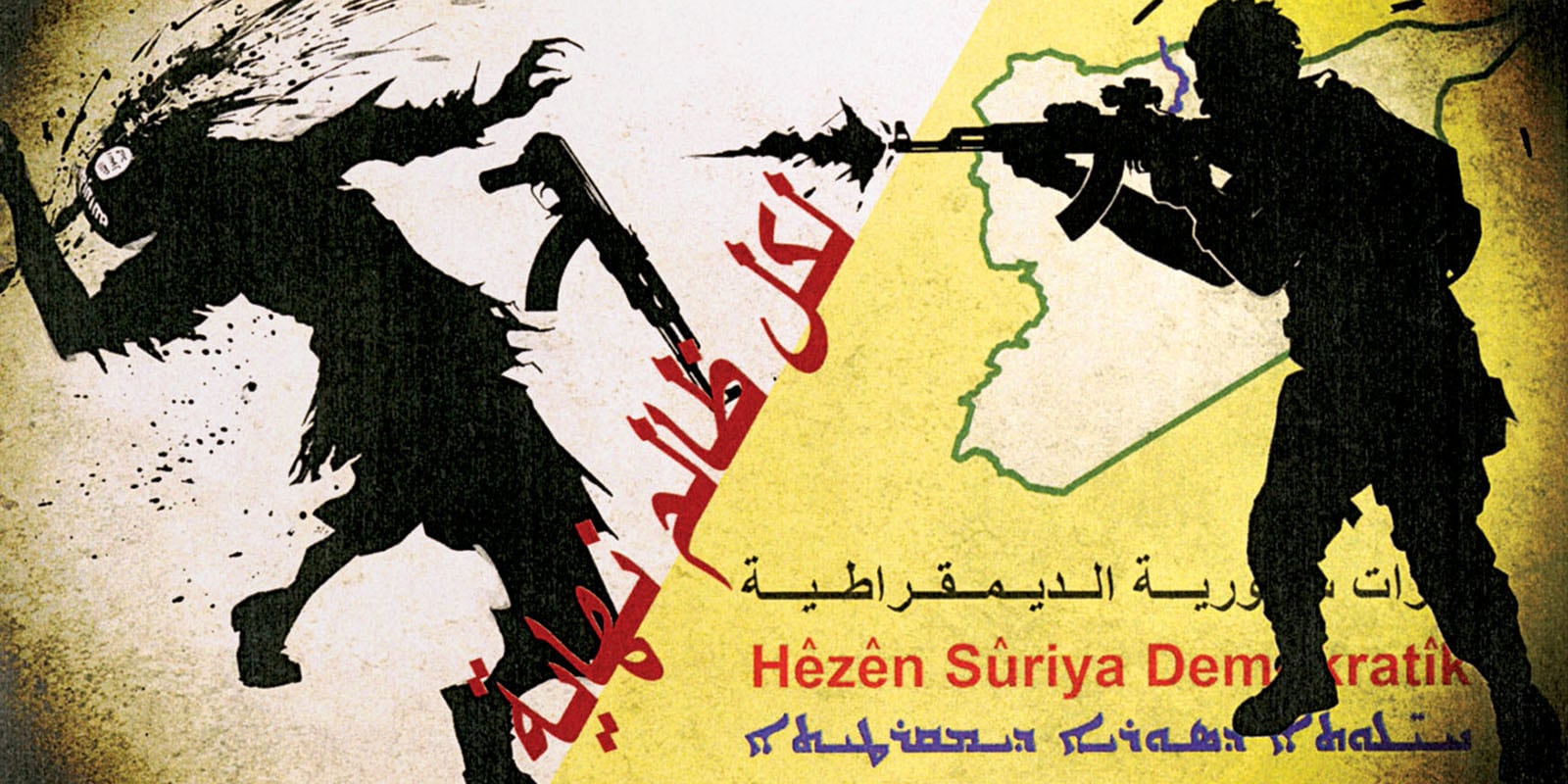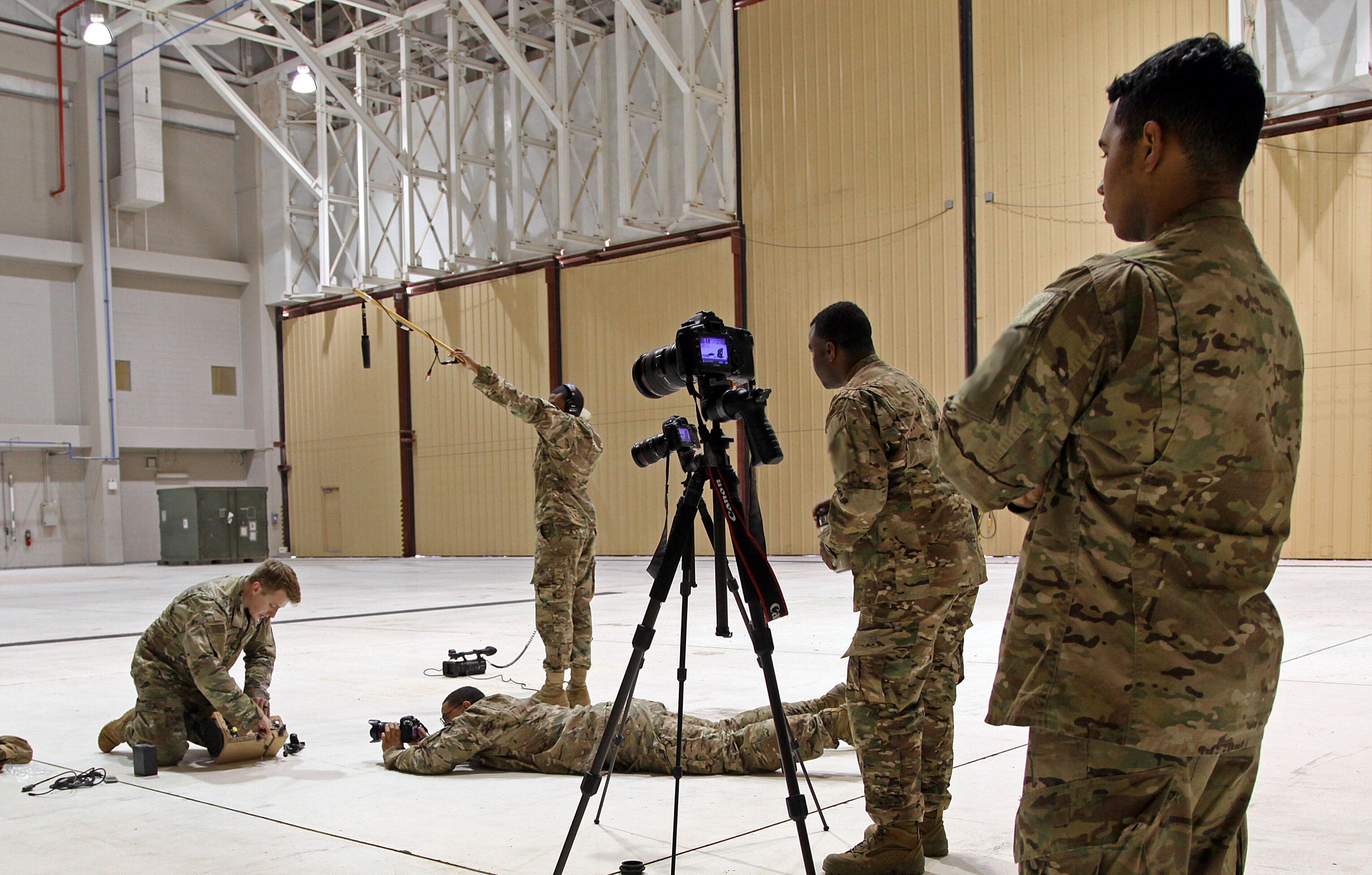Psychological operations forces have been under pressure from the Pentagon to step up their influencing missions, the results of which could be seen in Syria, the commander of U.S. Army Special Operations Command said last week.
The command oversees PSYOPS and civil affairs soldiers, which helped to disperse messages and establish governance in areas liberated from the Islamic State group over the past few years.
“Through the Syria efforts, we’ve gotten a lot more sets and reps,” Lt. Gen. Francis M. Beaudette told Army Times on Oct. 16.
“I’ve been accused of calling leaflets and loudspeakers audio and trash littering, but they do have a time and place," he added. "Syria is a great example. When the fiber was cut and the cell towers were down, people are hungry for information. So guess what was working there? Leaflets.”
The products are sometimes requested by lower-level PSYOPS task forces or teams, according to Army historian Jared M. Tracy, such as a PSYOPS soldier embedded with a Green Beret detachment.
These lower-level units often lack the time, equipment or easy access to the legal and cultural approval process required to make new designs or products, Tracy explained in a historical article documenting counter-ISIS messaging.
Requests for products are often built by the Military Information Support Task Force-Central at Al Udeid Air Base in Qatar. The small team there can sketch, print and record products, often using U.S. Air Force assets to airdrop leaflets, as well as use electronic warfare aircraft to relay airborne radio and television broadcasts.
One such broadcast that could have been inserted onto a radio net used by ISIS was obtained by the WarZone through a FOIA request made during the fight to liberate Mosul, Iraq, from the militant group.
“Fall back! They are everywhere! (Pause w/ static) Why is no one answering me?" the audio transcript reads. "If you can hear me fall back, I cannot hear you. You must fall back now or you will be killed! Is there anyone there? (Static that fades out).”

On the ground, PSYOPS soldiers also have mobile loudspeakers and other means of dissemination, but they’re not alone on the messaging front.
Army civil affairs operators, who try to influence local populations and institutions, were also present in Syria, helping to establish local councils to govern the areas liberated from ISIS.
“Syria is another great example of military councils: you have civil affairs operators doing human terrain analysis,” Beaudette said. “What are the influence points, who is going to be good at establishing positive governance that supports what we’re trying to do here — so we can stay focused on Daesh.”
Civil councils were set up in places like Raqqa and Manbij to consolidate gains after ISIS retreated from the area. Soldiers from the 96th Civil Affairs Battalion, 1st Special Forces Command, were tasked to push this process along, according to Lt. Col. Peter S. Brau, who served as the civil information integration officer in theater at the time.
Potential ISIS sleeper cells and improvised explosive devices left behind made Manbij in particular too dangerous for the U.S. State Department and U.S. Agency for International Development to deploy people to, Brau explained in a February article for Army University Press.
The special operations civil affairs teams went about advising and mentoring the population as it reestablished governance, delivering humanitarian aid and healthcare services. The Manbij council “enjoyed a high level of popular support” and was locally backed by militia and tribal leaders, Brau wrote.

He noted that efforts were made to “assuage Turkish concerns” over alleged influence from ethnically Kurdish YPG fighters on the councils — a group Turkey considers terrorists but which made up an important part of the U.S.-backed Syrian Democratic Forces. Ultimately, that was unsuccessful, as Turkey launched an offensive into Syria early this month following the withdrawal of U.S. troops.
When Brau wrote his article, there had already been two previous offensives by Turkish forces into areas near the U.S. military foothold. Those operations didn’t bode well for YPG allies. Turkey backed a rival authority called the Azaz Council, made of ethnically Arab council-members who fled Manbij during ISIS’ reign.
“The Manbij populace, by and large, considered the Azaz Council and the Azaz leadership as being comprised of corrupt politicians and thieves, largely due to a common perception that they fled the city with considerable amounts of public money,” Brau wrote.
In retrospect, Brau noted that the civil affairs teams could have advised the council they helped establish to include more representation from the Azaz group, though that "would have been a bitter pill for the residents who remained behind and who did not want people they considered traitors or corrupt to regain positions of authority.”
“In hindsight, with U.S. policy indicating it would remain until a peace settlement was reached, it was the right call at the time," Brau wrote. “However, knowing what the situation has devolved into today, there may have been other actions that could have been taken.”
Brau concluded that while it’s important for civil affairs teams to understand local customs and networks, they must also be cognizant of the strategic environment.
Although the presence of U.S. troops in Syria appears to be waning due to political and strategic considerations, special operations missions are ongoing in more than 60 countries. And Army Special Operations Command appears to take seriously the role that influencing missions play in the great power competition the United States is entering against peer adversaries like Russia and China.
The organization published a new strategy this month emphasizing, among other things, the need to incorporate “cyber and information warfare in all aspects of training" and to “better understand the information environment and weaponize information.”
“In every combat training center rotation, you won’t see a Green Beret without a PSYOP and civil affairs professional," Beaudette said.
Kyle Rempfer was an editor and reporter who has covered combat operations, criminal cases, foreign military assistance and training accidents. Before entering journalism, Kyle served in U.S. Air Force Special Tactics and deployed in 2014 to Paktika Province, Afghanistan, and Baghdad, Iraq.
